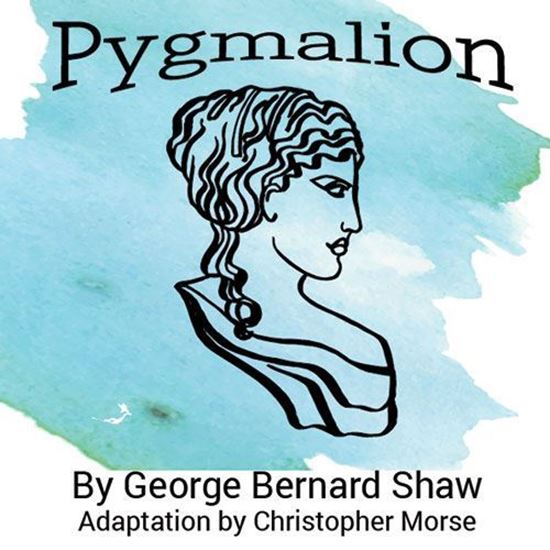
Pygmalion
London. On a rainy evening in 1913, linguist Henry Higgins has a fateful encounter with an impertinent Cockney flower seller. When the girl shows up at his laboratory the following day, the haughty and impulsive Higgins makes a bold wager with a colleague: employing his mastery of language he will transform Eliza Doolittle from a rough street urchin into an aristocratic lady in just six months’ time. And so begins Eliza's halting metamorphosis … but what will become of the poor girl once this “experiment” is over?
George Bernard Shaw's classic has been a hit with audiences for more than a hundred years. Pygmalion skillfully blends social satire, philosophical wit, a heated battle of the sexes, and what is perhaps the greatest platonic love story ever committed to paper. The play's musical incarnation, “My Fair Lady,” remains a Broadway staple.
Although it has everything you could want in a play – laughs, drama, iconic characters -- the original is not often performed on modern stages, primarily because of its ponderous length. This seamless abridgement removes about thirty percent of the dialogue, while retaining every important character and plot point. None of the meat of the play goes missing. This absolutely remains Shaw's Pygmalion; it's just a lighter, livelier Pygmalion, easier on actors and more entertaining for the audience.
Productions
Behind The Scenes
With playwright Christopher Morse
What inspired you to write this adaptation?
My girlfriend is artistic director of the troupe Stratford Players. Marsha first read Pygmalion in junior high, and it inspired her love for theatre. She always wanted Stratford to perform the play, but its length and some of the technical requirements presented obstacles. I created an abridgement as a gift to her.
During the process I developed a real appreciation for this delightful theatre classic. It seemed to me that there ought be a wide market for a concise and manageable version of Pygmalion. I therefore set out to further refine my abridgement and create the present edition.
What's your favorite part or line in the play?
HIGGINS: Doolittle, either you're an honest man or a rogue.
DOOLITTLE: A little of both, Henry, like the rest of us: a little of both.
Why? It's nice to know I'm not alone.
What was the most difficult part in writing the adaptation?
As I trimmmed away words the ghost of George Bernard Shaw stood frowning at my shoulder. He seemed particularly disgruntled by the removal of several wise pronouncements made by Professor Higgins in the final act -- utterances that might have sprung from Shaw's own lips. Still, the lines seemed so preachy, they just had to go.
Shaw and Shaw purists may not approve of this abridgement, and to them my sincere apologies. But honestly, who in the 21st century has the patience to perform, or to sit through, a three-hour parlor comedy?
What did you try to achieve with this show?
Seamlessness. About 30% of the dialogue has been removed, but I hope that one could read or watch this abridgement and never perceive where the cuts have been made – nor even notice that anything is missing at all.
Do you have anything else you'd like to add?
Pygmalion is a terrifically charming play offering wit, drama, iconic characters – just everything you want in a show. It's a pity that it isn't produced more often. I hope that this lighter, livelier edition will make the play more accessible to both amateur and professional theaters.
